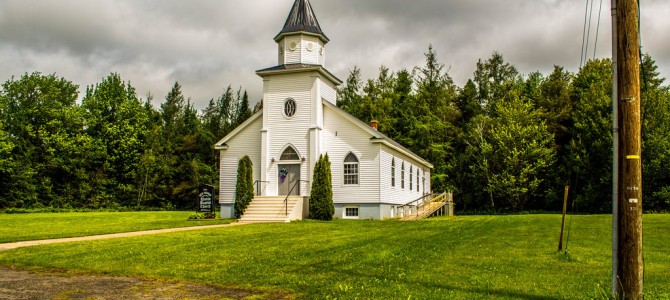
While many journalists were getting worked up over a quip about Arnold Schwarzenegger’s poor ratings on “The Apprentice,” Donald Trump said something far more consequential at the National Prayer Breakfast. “I will get rid of and totally destroy the Johnson Amendment and allow our representatives of faith to speak freely and without fear of retribution,” he promised.
Fantastic. The Johnson Amendment — a law forbidding religious organizations from engaging in political activities without losing their tax-exemption status — is an inexplicable attack on free expression; an illiberal hat-trick undermining the Free Speech Clause, Free Exercise Clause, and Establishment Clause. It was created specifically to inhibit debate by forcing churches to choose between free expression and faith.
In 1954, Sen. Lyndon Johnson, worried about opposition at home, came up with an amendment to the Internal Revenue Code Section 501(c)(3) that prohibited campaign speech by nonprofits and tax-exempt churches. There was no floor debate on the law, and one assumes, those voting for it saw little downside in quashing church criticism in their own states.
One also imagines that the folks writing the First Amendment didn’t expect their pastors would be monitored by a central government agency and forced to watch what they say in the pulpit. Yet, ignoring our rich tradition of religious activism, which includes the abolitionist movement, we’ve normalized the idea that pastors, priests, and rabbis should avoid talking about candidates, even when those candidates attack foundational ideas of faith. We now task the IRS with monitoring every utterance in every church by every religious organization in the United States, and then deciding which of those thoughts constitute acceptable speech or “issue advocacy.”
The Johnson Amendment empowers government to discriminate purely on the content of speech. So, for example, a pastor can say “Senators who fail to support school choice will soon find themselves in the fiery depths of hell, forever” but not “Candidate Al Franken will soon find himself in the fiery depths of hell, forever.” Imagine such laws dictating speech in publically funded universities — or anywhere else, for that matter.
Political candidates, by the way, function under no such restrictions, and can be as critical of Catholicism or Mormonism or Islam as they like. Yet church leaders can’t explicitly react. And while religions have institutional positions on many major political issues, from abortion to gay marriage to refugee bans, their leaders are specifically incentivized by the state to avoid debating the people who make laws governing those issues.
Moreover, as far as I know, the Free Speech Clause does not come with an asterisk and a set of conditions for participation. The argument I hear most often in defense of the Johnson Amendment goes something like this: “What about separation of church and state, you theocratic nut! Why should I subsidize the church’s speech?”
Don’t join one, and you won’t. I don’t.
Unless you’re arguing that the state is entitled to every dollar in America, and that every dollar it doesn’t collect is considered a subsidy. Church members already pay all kinds of taxes. Churches, in fact, were exempt from taxes long before Johnson decided to restrict speech freedoms. Tax exemptions to religious institutions are already constitutional. In fact, the Supreme Court found that these exemptions created only “minimal and remote involvement between church and state and far less than taxation of churches” (italics mine). Making expression contingent on a tribute to the state is risible justification for limiting rights.
So I agree, let’s get the state out of church business. If Trump had said “Let’s amend the Johnson Amendment so Episcopalians can now speak their minds freely in the pulpit,” that would be a problem. If Trump had said “Let’s amend the Johnson Amendment to prohibit Muslims from speaking their minds in the mosque,” that would be another problem. He does neither.
On top of the obvious problems, oversight can also be arbitrarily and unevenly applied or easily exploited by partisans on both sides who want to play favorites and punish dissenters. It’s not an unheard-of abuse, I’m afraid.
Now, the Johnson Amendment survived court challenges in 1983, 1990, and 2000, and it might be difficult to overturn legislatively. I’m unsure how Trump’s executive order intends to weaken it, or if his plans are within the bounds of proper executive power. ABC News has obtained a draft of the “religious freedom” order, which they are unable to release. (The bias of news organizations on this topic is never more evident than when they put quotation marks around legitimate ideas like religious freedom but not around dozens of other ideologically loaded phrases.)
If the leaked drafts of the order are anything like the final version, it will be a considerable victory for First Amendment activists. Whether church leaders would use their freedom to campaign or not (most, I assume, would not), any weakening of the Johnson Amendment would be a step in the right direction.









